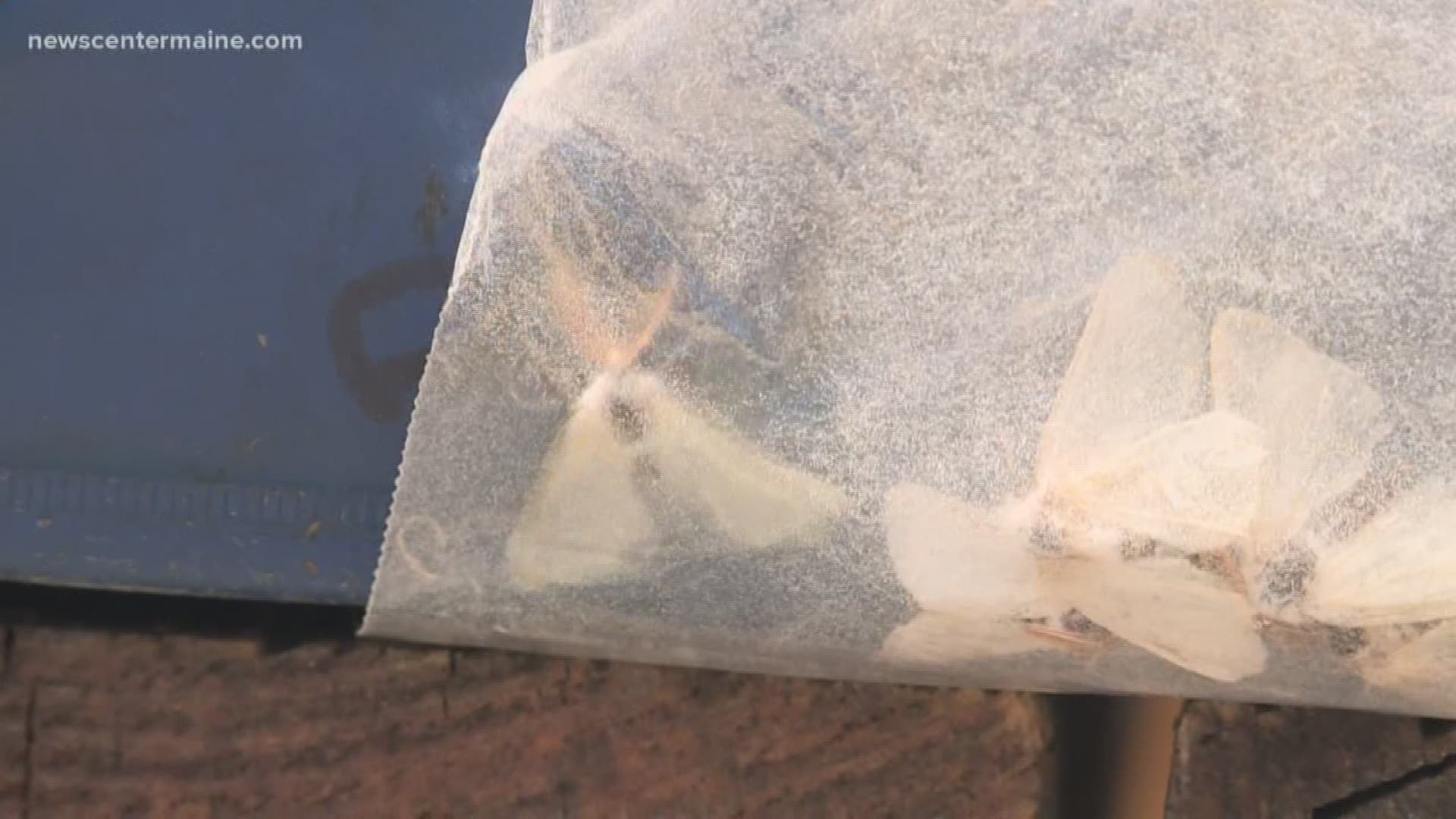MAINE, USA — Warmer weather is on its way, but with the promise of spring and summer also comes the inevitable outbreak of browntail moth in some regions in Maine.
On Wednesday, May 29, the Maine Department of Health and Human Services issued a number for people to call when they need information regarding how to deal with these pests.
2-1-1 Maine (or 1-866-811-5695) is equipped with a specialist to inform people about browntail moth biology, management, pesticide options, health concerns, toxic hair exposure, and potential public policy and economic impacts.
To access this information, Mainers can also email info@211maine.org or text their zip code to 898-211.
RELATED: Outbreaks of destructive moth expected to be bad in Maine
RELATED: Browntail moths spreading beyond the midcoast
Browntail moth caterpillars are active from April to late June or early July. Their hairs blow around in the air and onto leaves in the fall and spring and can be stirred up by mowing, raking, sweeping, and other activities.
These hairs, found on the caterpillars, shed skins, and cocoons, can cause a rash similar to the one caused by poison ivy. The condition can last from a few hours up to several days, and in more sensitive individuals, can stick around for weeks.
Hairs can also cause breathing problems if they become airborne. The CDC says that respiratory distress from inhaling the hairs can be serious.
There is no specific treatment for the rash or breathing problems caused by these pests. Anyone affected should try to relieve their symptoms and stay away from any further exposure.
Maine and Massachusetts are the only states in the U.S. known to have this moth, which is dark brown with white stripes on the sides and two red-orange dots on the back.
To protect themselves, the CDC says Mainers can take the following steps:
- Avoid places that are heavily infested by caterpillars
- Take cool showers and change clothing after outdoor activities in heavily infested areas
- Rake, mow, etc. when foliage is wet to prevent hairs from becoming airborne
- Cover face and tightly secure clothing around the neck, wrists, and ankles when working outdoors
- Dry laundry inside during June and July to avoid hairs embedding into clothing
The Maine CDC, Maine Forest Services, and 211 Maine partnered together to establish this hotline.

